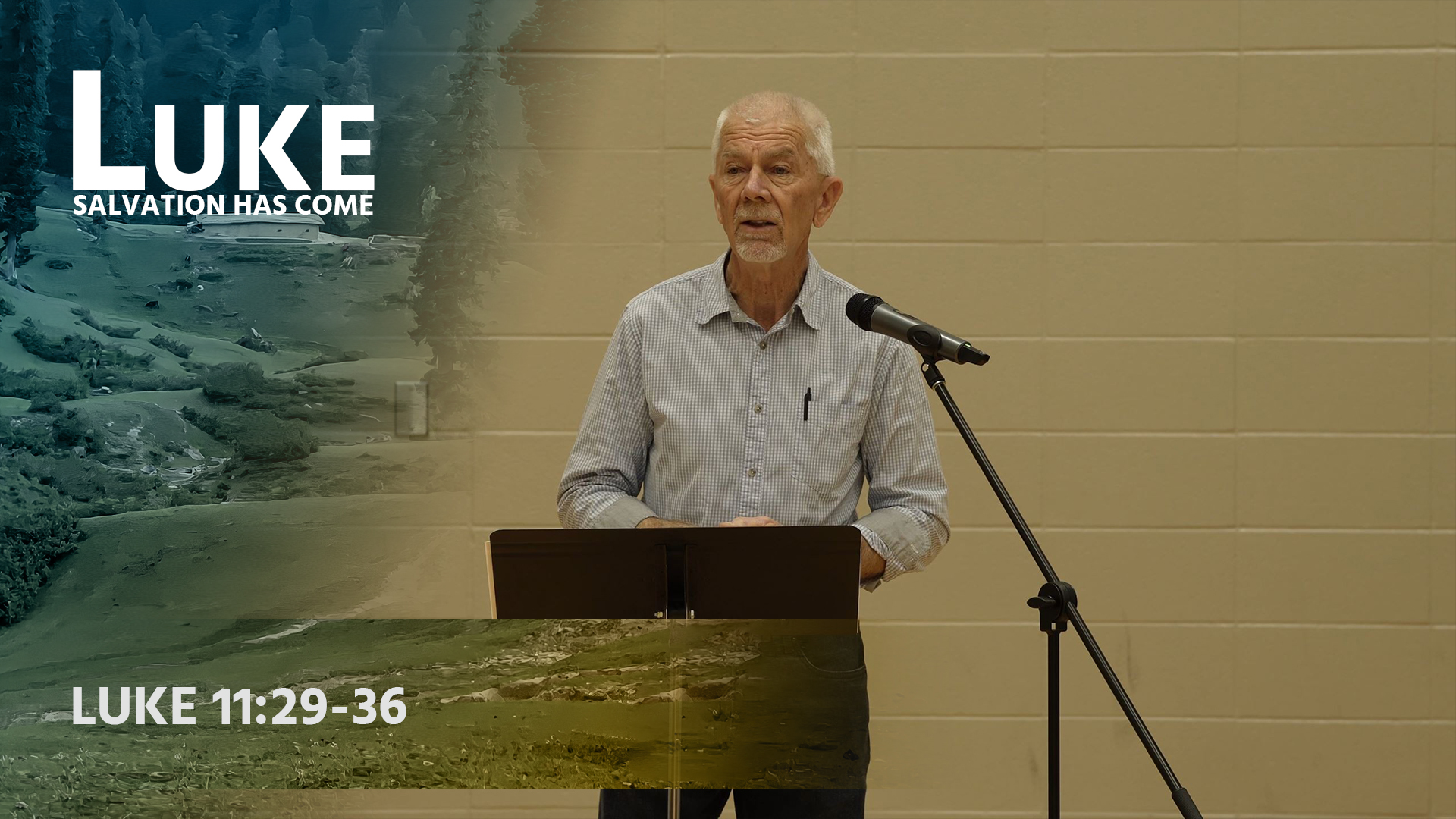Hermeneutics: Interpreting and Understanding the Bible – Part 2
This is part 2 of our series on interpreting and understanding the Bible. You can find part one HERE.
B. The Interpreter
I would like to embark on this study by first examining some pertinent passages from the all-sufficient Scriptures.
And the disciples came and said to Him [Jesus], “Why do You speak to them in parables?”
He answered and said to them, “Because it has been given to you to know the mysteries of the kingdom of heaven, but to them it has not been given. For whoever has, to him more will be given, and he will have abundance; but whoever does not have, even what he has will be taken away from him. Therefore I speak to them in parables, because seeing they do not see, and hearing they do not hear, nor do they understand. And in them the prophecy of Isaiah is fulfilled, which says:
“Hearing you will hear and shall not understand,
And seeing you will see and not perceive;
For the hearts of this people have grown dull.
Their ears are hard of hearing,
And their eyes they have closed,
Lest they should see with their eyes and hear with their ears,
Lest they should understand with their hearts and turn,
So that I should heal them.”“But blessed are your eyes for they see, and your ears for they hear; for assuredly, I say to you that many prophets and righteous men desired to see what you see, and did not see it, and to hear what you hear and did not hear it.” (Matt. 13:10-17 NKJV)
But the natural man does not receive the things of the Spirit of God, for they are foolishness to him; nor can he know them, because they are spiritually discerned. (1 Cor. 2:14 NKJV)
In these and other Scriptures, we learn that the biggest problem in discerning the message of the Bible lies in the nature of the interpreter himself. There is a problem with mankind. Jesus said in John 6:63, “The words that I speak to you are spirit, and they are life.” Thus, natural man, though reading the words, cannot know the true and ultimate message of God. The problem is in the interpreter himself. His mind is blind to the truth of Christ as revealed in the Word of God (see 2 Cor. 3:14-4:6). The first and most essential key in rightly understanding or interpreting the Scriptures is spiritual life. One must be born again. Jesus said, “‘Most assuredly, I say to you, unless one is born again, he cannot see the kingdom of God’” (John 3:3).
If we are going to correctly perceive the Holy Spirit’s intended meaning, and gain access to the Bible’s vast wealth of spiritual wisdom and knowledge, we need to be spiritually alive, with eyes to see and ears to hear the mysteries of the kingdom of heaven, and hearts desirous of God’s Word because we love him. We are totally dependent upon God for such blessing.
When Peter expressed his understanding of who Jesus really was, the Lord told him, ” ‘Blessed are you, Simon Bar-Jonah, for flesh and blood has not revealed this to you, but My Father who is in heaven’” (Matt. 16:17). Jesus did not congratulate him for figuring this out through intense study and research, but gave the credit to God, where it belongs.
How did Peter know that Jesus is the Christ, the Son of the living God? It was revealed to him by the Heavenly Father. Jesus contrasts “flesh and blood” knowledge with truth that is revealed by God (and of course, Jesus is the truth [John 14:6]).
Cliff Bjork wisely comments, “The interpretation of God’s word, therefore, does not depend on outside sources for verification, nor upon the excellence of any particular translation, nor upon the natural insight of those who seek to explain it, nor upon the human perceptive powers of those who read it. Any potential obstacles to understanding that these communication components might otherwise present, the Holy Spirit is able to overcome. If it pleases Him, He has the power to enable the simplest of men to comprehend the most profound spiritual truths, or to prevent the wisest of men from discerning the simplest spiritual truths” [“Searching Together” Vol. 22:1-4; 1994].
External evidences such as historical, political, or cultural settings can be helpful when it comes to providing background for any given passage, but they are not necessary when interpreting any essential matters of faith and practice.
In 2 Peter 1:2-4, we read:
Grace and peace be multiplied to you in the knowledge of God and of Jesus our Lord, as His divine power has given to us all things that pertain to life and godliness, through the knowledge of Him who called us by glory and virtue, by which have been given to us exceedingly great and precious promises, that through these you may be partakers of the divine nature, having escaped the corruption that is in the world through lust.
We can be assured that the Bible itself sets forth all that is necessary for its own interpretation. First and foremost, as we have seen, it is essential to be born of God, so that as partakers of the divine nature, we can know God, who is spirit, in the face of Jesus Christ.
The Bible unfolds the historical self-revelation of God to mankind. Because the Fall radically impaired man’s ability to think properly, God’s self-revelation is designed to restore man’s thoughts to be in line with his. For this to occur, man needs his mind to be renewed by the Spirit of God.
Consider the Jews of the first century. I don’t think you will find more diligent students of the Scripture. In fact, the study of Moses and the Prophets formed the foundation of their entire educational system. Scripture was the primer from which they first learned to read. It was the source of their musical expression. Their family life, society, and government were based on the Scripture. All their expectations were built upon the writings of the prophets. Yet, when all that had been prophesied in these familiar writings about the coming of the promised Messiah finally came true in the person of Jesus Christ, they did not recognize him! “He came to His own, and His own did not receive Him” (John 1:11). In fact, “… the Jews persecuted Jesus, and sought to kill Him” (John 5:16). Jesus told these men (John 5:39) who searched the Scriptures, “‘For if you believed Moses, you would believe Me; for he wrote about Me” (John 5:46). If mere knowledge of Scripture was all that had been needed, they would have recognized the promised Redeemer at once. Instead, many of them groped about in the blindness of unbelief, because “unless a man is born again, he cannot see the kingdom of God.”
How is it that such diligent students of the Scripture could have been so far off the mark when it came to understanding God’s redemptive purposes in his Son? Paul tells us that despite their intelligence and study, “… their minds were blinded. For until this day the same veil remains unlifted in the reading of the Old Testament, because the veil is taken away in Christ. But even to this day, when Moses is read, a veil lies on their heart” (2 Cor. 3:14-15). Just because someone has a great intellect, or considerable seminary training does not guarantee that they have a correct interpretation. Nor does majority rule when it comes to rightly understanding the Scripture. Peter and John were untrained and uneducated men, but Jesus, through his Spirit, opened their minds and revealed to them the truth of the kingdom of heaven. By the grace of God, they saw and understood when “‘… many prophets and righteous men desired to see what [they] saw, and did not see it, and to hear what [they] heard and did not hear it’” (Matt. 13:17). This should cause all of us to receive truth in great humility, as a gift of God’s grace, rather than possessing it in pride, as if our understanding is our own accomplishment.
When it comes to natural man, whether Jew or Gentile, there is a total inability to comprehend spiritual truth, for all are under sin. The problem is not just one of ‘focus’, but of a total inability to perceive the ‘light’ of God’s word (2 Cor. 4:4). There is only one cure for spiritual blindness, and that is something that the unregenerate cannot do for themselves. God alone can remedy the situation and cause the dead to live and the blind to see. The solution is a creative act of “…God who commanded light to shine out of darkness, who has shone in our hearts to give the light of the knowledge of the glory of God in the face of Jesus Christ” (2 Cor. 4:6). The finest glasses or contact lenses that money can buy will not give a blind man the ability to see or read. In like manner, until the Holy Spirit makes it possible for the ‘light’ of the gospel to enter the sinner’s spiritual ‘eyes’, no other hermeneutical aid to clearer vision will be of any use. Not until the scales of unbelief are removed will the sinner be able to perceive “the light of the knowledge of the glory of God in the face of Jesus Christ.”
Spiritual birth, therefore, is absolutely essential to accurately understand the Spirit-intended meaning of the Bible. Once spiritual sight is given, other hermeneutical aids designed to bring biblically revealed truth into sharper focus may indeed prove very helpful.
We have learned from Scripture itself that when it comes to truly understanding God’s message in his written word, the problem is not inherent in the words themselves. The language of Scripture is plain enough. The words and syntax used by the Holy Spirit are the same as might be used in any literature. However, unlike all other human writings, there is also a deeper, spiritual content beneath the surface. It is this spiritual message that is incomprehensible to those who are not born-again. While unbelievers may understand the ordinary sense of the words used in the Bible, the reality of the spiritual truth is beyond their grasp. This inability to comprehend spiritual truth has nothing to do with the ordinary vocabulary, grammar, or syntax of Scripture. To the one who has not yet been born again, the Bible will remain a spiritually closed book.
Have you seen the light of the gospel of the glory of Jesus Christ? If you do, blessed are you, for flesh and blood have not caused you to grasp the truth of Jesus Christ. All the glory must go to God who has freely revealed the light of truth to us by his Spirit. As the undeserving recipient of such an incredible blessing, the child of God can only exclaim, “Thanks be to God for His indescribable gift!” When God sends his Spirit to regenerate his elect, he does so in order that “they may have the full riches of complete understanding, in order that they may know the mystery of God, namely, Christ, in whom are hidden all the treasures of wisdom and knowledge” (Col. 2:2-3; NIV).
One note of caution needs to be given. While the new birth enables believers to understand biblical truth, it does not—by itself—guarantee error-free insight into the meaning of every passage. All spiritual knowledge is not infused into our minds the moment we are regenerated and believe. On the contrary, God has ordained that such knowledge should be progressively obtained as we live and prayerfully study the Scriptures with reliance upon the Spirit (Ps. 119:18, 34, 73, 125). The newborn child of God must “… grow in the grace and knowledge of our Lord and Savior Jesus Christ” (2 Pet. 3:18).
Categories: Blog

